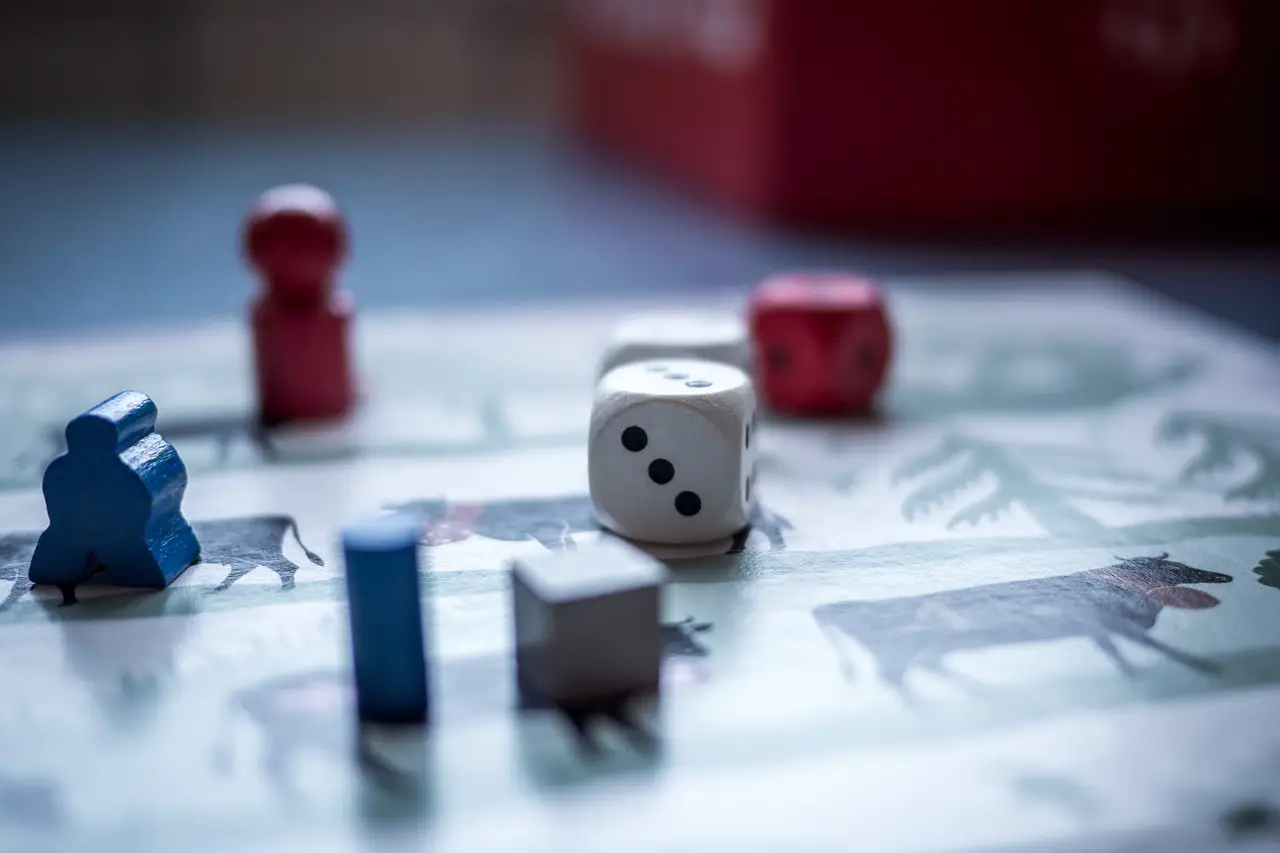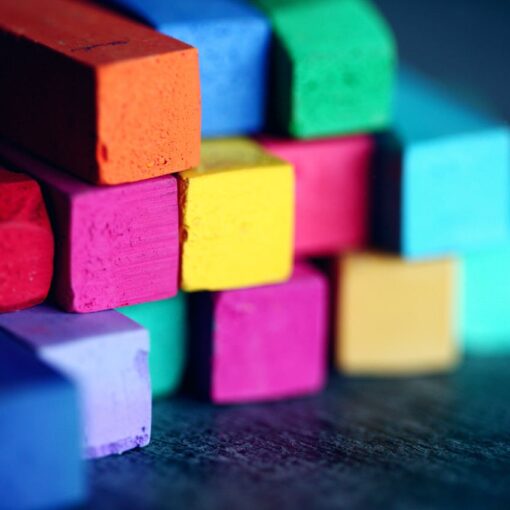Do you know why board games are called that way? It’s because you only play them when you’re bored.
Lousy puns aside, board games have come a long way from being just lowly time passers. Board games can be as simple as token-and-dice races to as complex as world building, role-playing sessions. But did you know that board games can give more than just fun and entertainment? Did you know that they can make you smarter?
Brief Evolution of Board Games
Board games or tabletop games have been around since 3500 BC, and are as many as there are cultures in the world. Board games have been found buried with the ancient pharaohs of Egypt. There are ancient books in Iran and China that talk about in-depth rules and descriptions of board games. Chess, a game enjoyed by many all over the world, originally came from India. Backgammon, a game still enjoyed today, has been played since 5,000 years ago in Mesopotamia.
People still enjoy these games even today, which proves the staying power of tabletop games. You might think that because technology has paved the way for more advanced and visually appealing games, casual tabletop games would’ve died out. But actually, board games have been gaining steady traction since 2010. This is because the internet has actually made it easier to promote and sell board games. Unlike before, you’d need to walk through a toy shop to see board games. Now you can just search for them online. You can buy them with a click and have them delivered to your doorstep.
Not Just for the Bored
Tabletop games continue to be popular because of a number of reasons. For one thing, they’re mostly meant to be played with others on a face-to-face setting. This means board games naturally build camaraderie and friendly competition. In fact, chess is one of Armenia’s national sports, and Scrabble is a huge deal in Nigeria.
Aside from giving enjoyment, many board games can also enhance or train the brain. It’s true that some board games are simple and require pure luck or chance to win. However, many games will need some level of physical or mental skill.
This is where the “brain training” can actually happen. As you play the games over and over, your mind must learn the skills needed to win the game. Chess and Clue, for example, are great games for training logic and problem-solving. Boggle and Scrabble on the other hand can improve language and memory. And then, some board games improve critical thinking skills.
Critical thinking is the analyzation of information to make a decision or judgment. There are many skills associated with the critical thinking, but the six core ones are:
- Interpretation – This skill is the ability to recognize information and understanding them by putting them into categories and giving them meaning. An example is when you see a leaky faucet and recognize it as a problem.
- Analysis – This skill helps you examine the information or ideas and deciding which course or courses of action to make. An example of analytical thinking is deciding to fix the leaky faucet while also putting a basin to collect the dripping water while you get to work.
- Evaluation – This skill is useful when you need to weigh different options or approaches and decide on the best one. An example would be evaluating whether fixing the same leaky faucet or replacing it with a new one would be better.
- Inference – This skill is used when you draw patterns or connections from abstract elements so you can draw reasonable hypotheses or conclusions. An example would be deducing that the leak in the faucet is caused by a worn O ring after observing the source of the leak.
- Explanation – This skill involves communicating the justification behind the decision. An example would be explaining how you deduced the worn O ring because the leak stems from the handle and not the spout.
- Self-regulation – This critical thinking skill involves sensing your own lapse in judgment and taking steps to correcting yourself.
These six cores often work with each other in quick succession to display critical thinking as a whole.
Brain Games
But could board games really enhance your critical thinking skills? Yes, they can. In fact, some institutions encourage the use and play of certain board games rather than casual handheld games.
Now, if you’d like to get in on the action, you’ll be happy to know that it’s easy to get mind-enhancing board games. Here are 5 that you should check out:
1. Mancala
Mancala has been around for thousands of years. There are several variations of Mancala found in Africa and Middle East and Southeast Asia. Players select a hole or pit, and then place a counter (known as “seed” but commonly uses beads) taken from the selected pit in to each of the pits they will pass as they make their move around the board. Players often attempt to capture the other’s seeds. The one with the most seeds in their storage at the end of the game wins.
Mancala develops mathematical skills, as well as the ability to think and plan ahead.
2. Catan
Also known as Settlers of Catan, is a multiplayer board game. Designed by Klaus Teuber, Catan trains players how to strategize.
Players begin with two settlements and two roads. The goal is to build the most successful and effective civilization of all. Players will roll dice to get the resources they need to build their empire—stone, brick, lumber, and the like.
Catan develops communication, strategy, and inference. Players can trade for resources they need, which needs communication. They will also learn to strategize and plan ahead based on their assumptions on what the others players’ immediate goals are, based on their actions.
Bonus: Catan has several spin-off board games, such as A Game of Thrones and Star Trek.
3. Quoridor
Quoridor is an abstract strategy game that can be played by 2-4 people. Mirko Marchesi designed the game and Gigamic Games published it.
The object of the game is simple: players must move their token from one end of the board to the other. However, here’s where the challenge and strategy come into play. Instead of moving your piece, you can opt to place a wall to block the path of your opponent’s instead.
Quoridor is a Mensa Mind Game awardee, and with good reason. It’s simple, but its trial-and-error playthrough can lead to hundreds of unique gameplays. This board game develops adaptability, inference, logic, and the ability to plan ahead.
4. Pandemic
Pandemic is a bit different from other board games. While most of tabletop games will have players compete against each other, Pandemic will have players cooperate with each other to achieve a common goal.
Designed by Matt Leacock and published by Z-Man Games, Pandemic can be played by 2-4 people. Players will be randomly given one of these roles: medic, dispatcher, operations expert, scientist, and researcher, and will have four actions per turn. Players must all work together to stop four diseases from spreading and becoming a pandemic.
This board game develops problem-solving skills, cooperation, and teamwork. Pandemic is a great way to enhance your evaluation and explanation skills.
Pandemic has several expansions and editions, including On the Brink, which includes a fifth player.
2. Chess
Lastly, no list about mind-enhancing board games will be complete without chess. This classic game from India has been around for centuries, and will be probably be around for centuries more. Chess has been ported into several digital platforms, and has even been modified into fantasy and fiction (such as wizard’s chess in Harry Potter).
Chess is played by 2 people. The goal is to capture the opponent’s king. Each player has a set of pieces, either black or white. Each set has the same number and kind of piece, including knights, pawns, bishops, rooks, and a king and queen. Each piece has a unique way of moving and capture, and players must manipulate one per turn until they can checkmate the opponent’s king.
Chess develops focus, concentration, logic, inference, and evaluation. In competitions, moves are marked for time, so players will be trained to think fast. Chess has thousands of combinations of moves and playthroughs, which will also enhance players’ creativity and adaptability.
Chess has many variants. For example, a hexagonal chess board exists. The board has three cell colors, and each player has three sets of bishops. Another variant is the 3-player chess, which also uses a hexagonal board. However, the board and set pieces have the same standard colors and numbers. The board for the 3-player chess converges in the middle.
Learning While Having Fun
Who says board games are only for children? The wide varieties of board games available will assure you that you can find one that you can enjoy at any age. The best part? You also get to give your brain a workout while having fun with family and friends.
Today’s modern technology has paved the way for solo games and casual time-wasters. Much of the beauty of playing with a real person has been lost. It’s nice to try playing board games every once in a while to bring back the dying skill of interpersonal communication and socialization. Why not give these a try?





